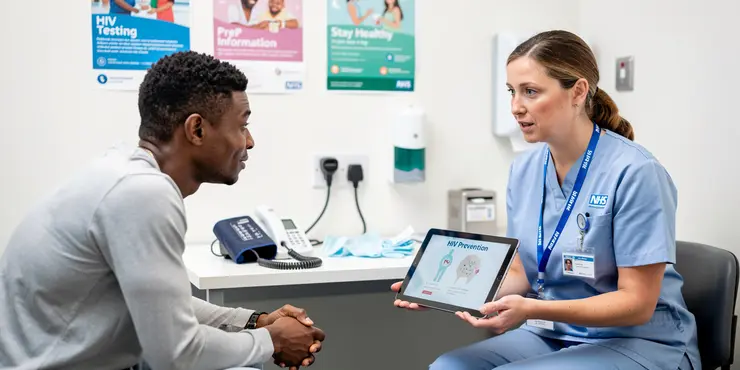
Find Help
More Items From Ergsy search
-
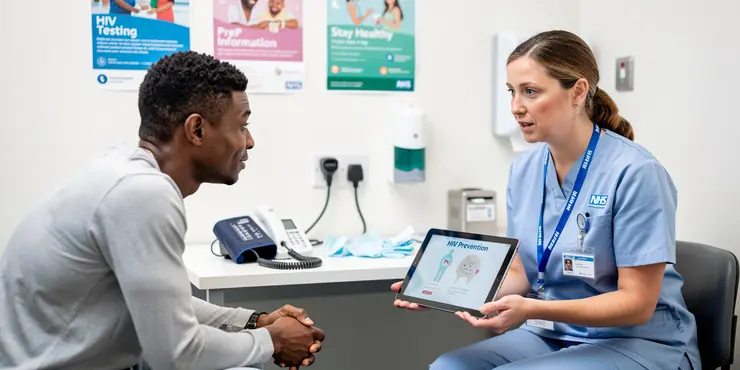
How can HIV be prevented?
Relevance: 100%
-
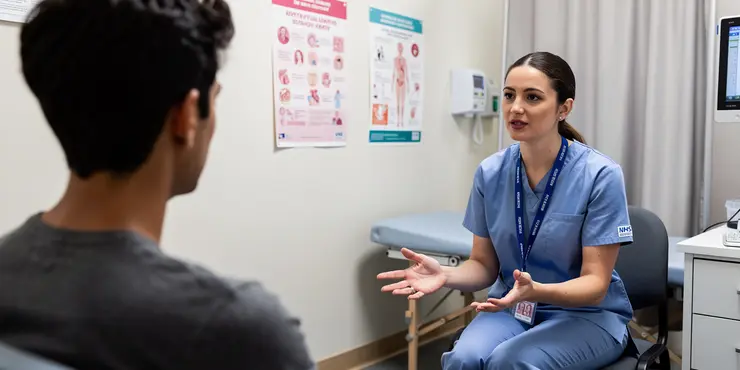
What is HIV?
Relevance: 83%
-
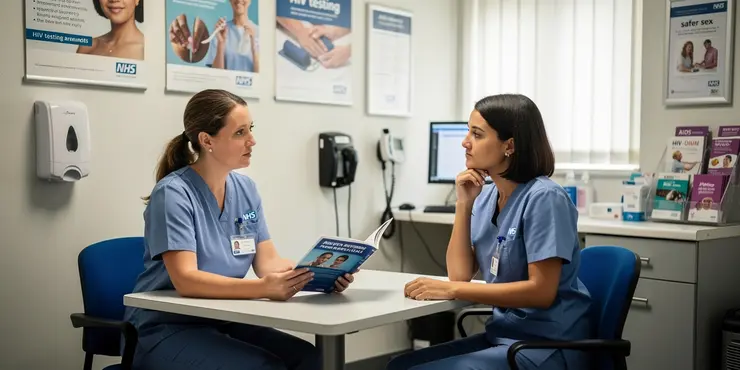
What is HIV / AIDS?
Relevance: 79%
-
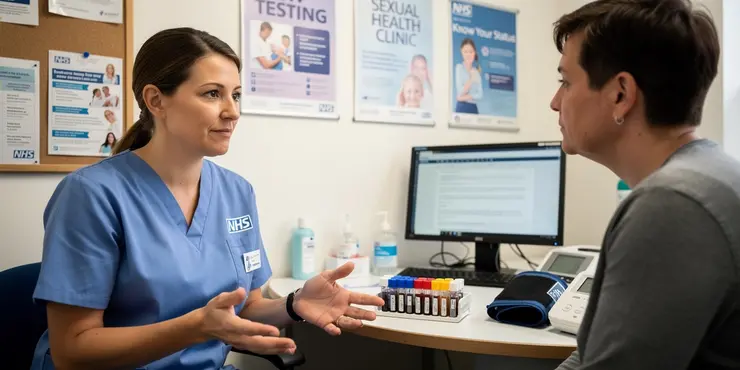
How is HIV transmitted?
Relevance: 79%
-
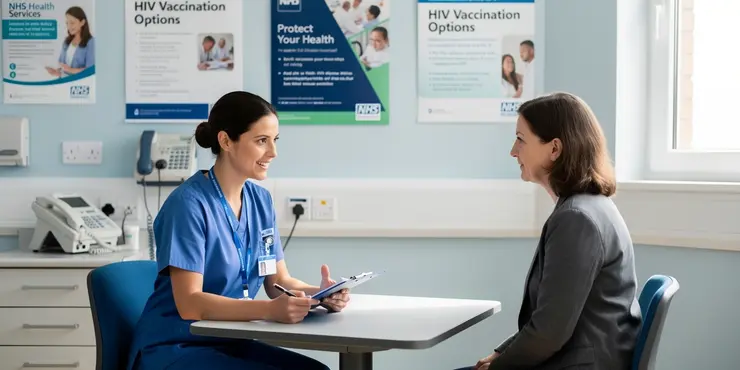
Are there vaccines available for HIV?
Relevance: 78%
-
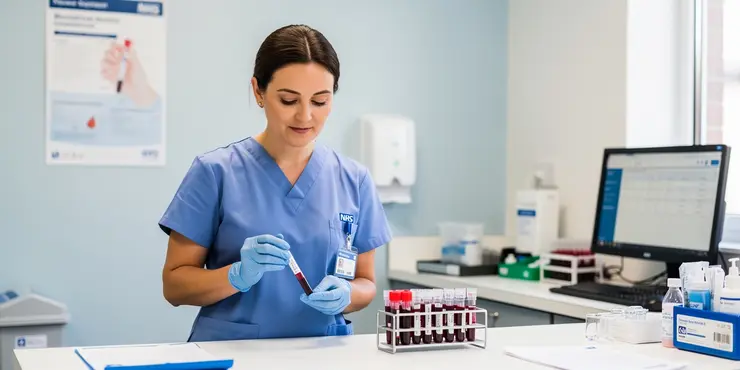
How is HIV diagnosed?
Relevance: 75%
-

HIV and pregnancy | NHS
Relevance: 75%
-
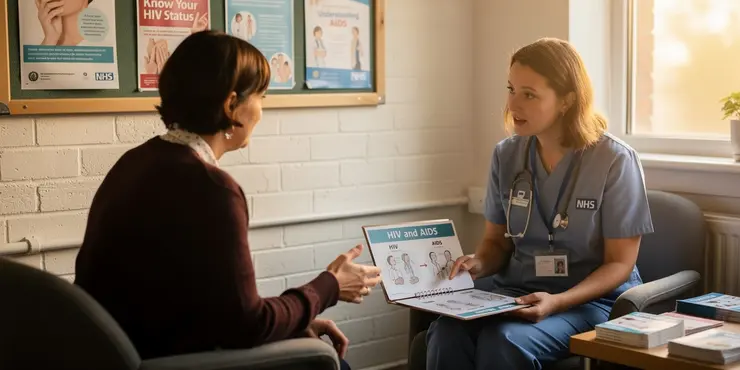
What is the difference between HIV and AIDS?
Relevance: 74%
-

Sexual Health - HIV Testing
Relevance: 72%
-
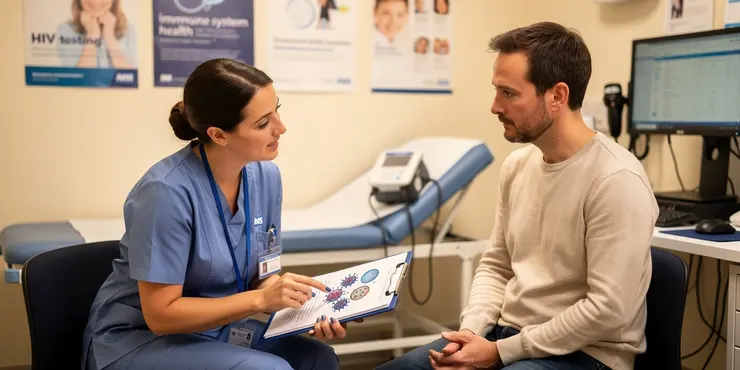
How does HIV affect the immune system?
Relevance: 70%
-
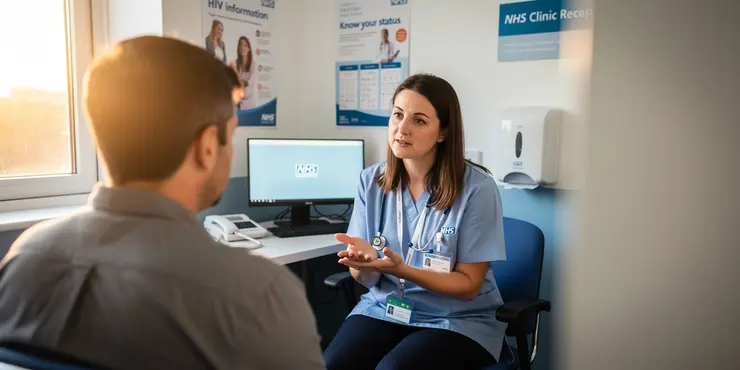
Is HIV only a concern for certain groups of people?
Relevance: 70%
-
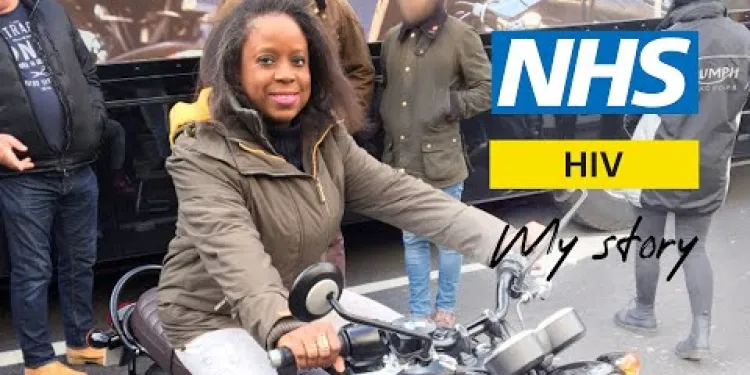
HIV - My Story - Florence | NHS
Relevance: 69%
-
Can HIV be transmitted through blood transfusions?
Relevance: 69%
-

Can people with HIV lead normal lives?
Relevance: 69%
-
What role does stigma play in the HIV epidemic?
Relevance: 69%
-
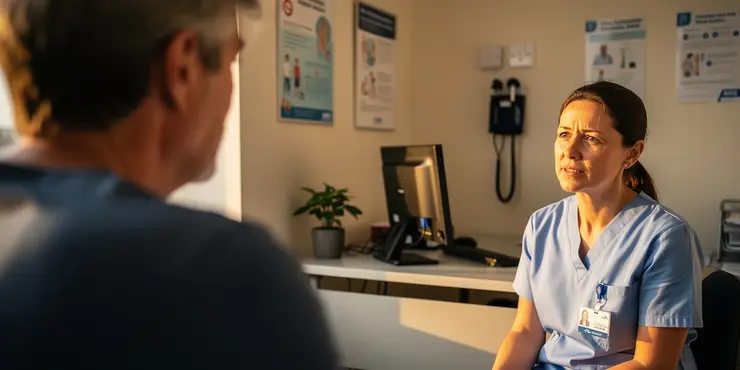
Can HIV be transmitted through insect bites?
Relevance: 68%
-

Is it safe for a partner of someone with HIV to have children?
Relevance: 68%
-
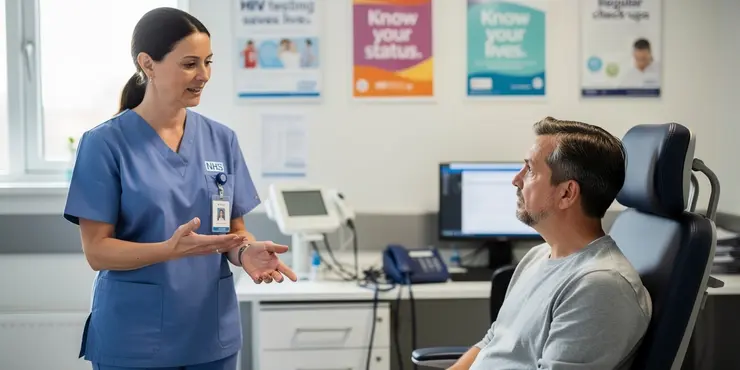
How often should someone get tested for HIV?
Relevance: 63%
-
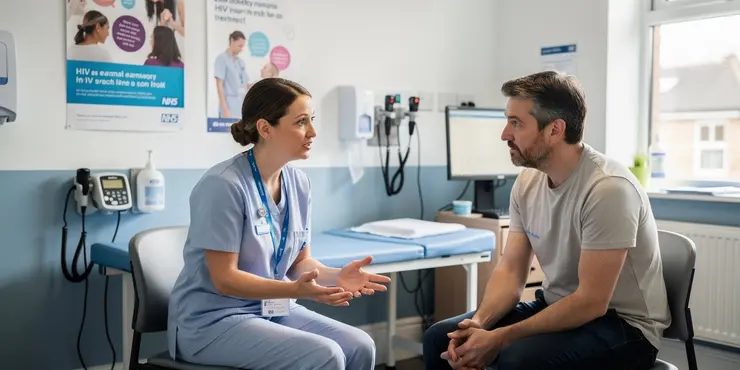
Can HIV be cured?
Relevance: 56%
-
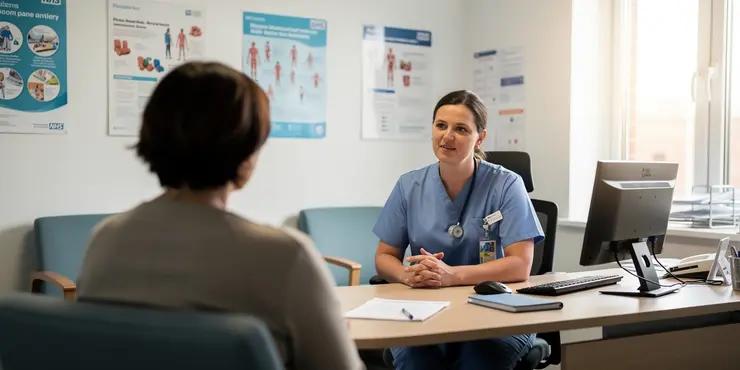
What are the symptoms of HIV?
Relevance: 53%
-
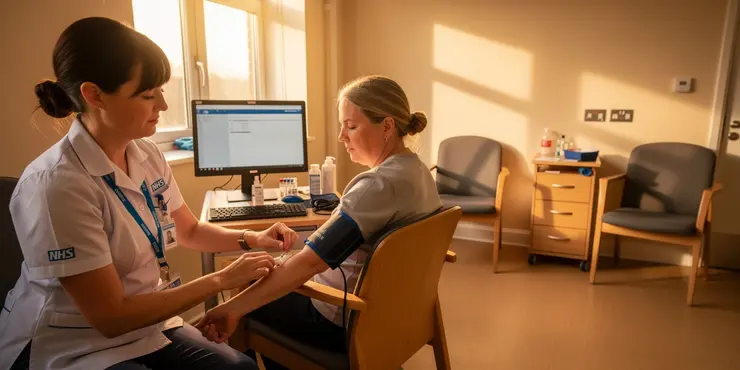
How is blood screened to prevent disease transmission?
Relevance: 46%
-
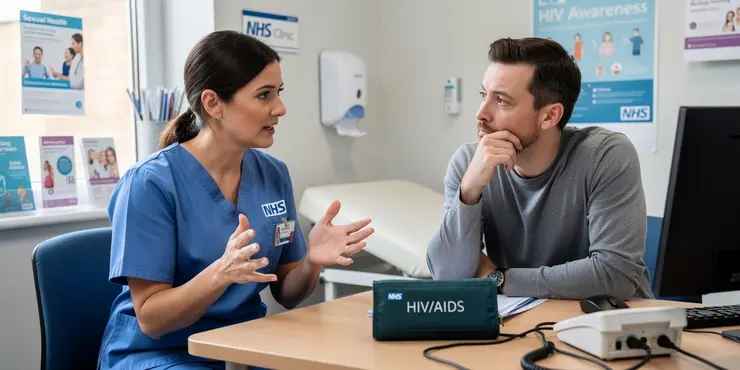
What is AIDS?
Relevance: 42%
-
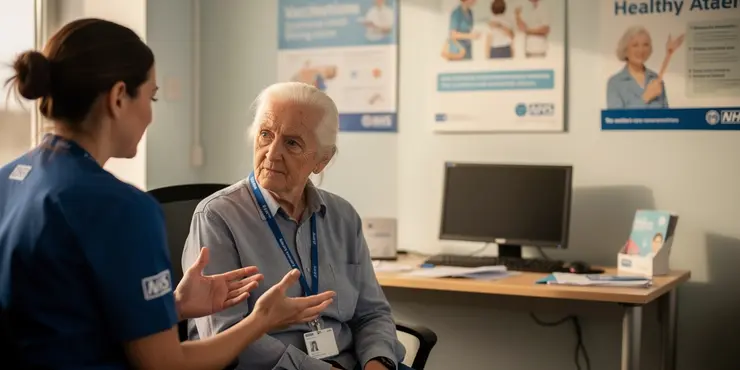
Can shingles be prevented?
Relevance: 40%
-
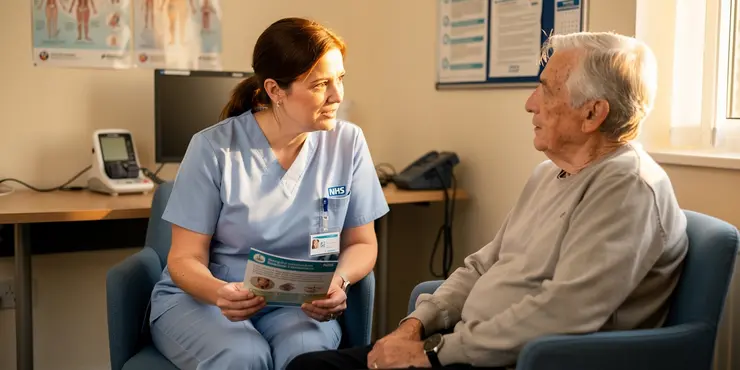
Can shingles be prevented?
Relevance: 40%
-
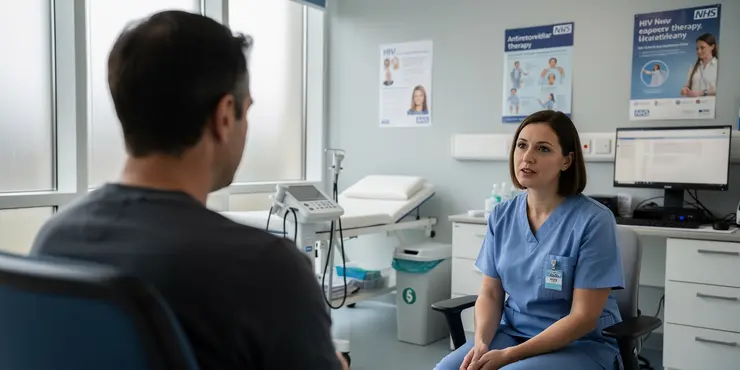
What is antiretroviral therapy (ART)?
Relevance: 39%
-
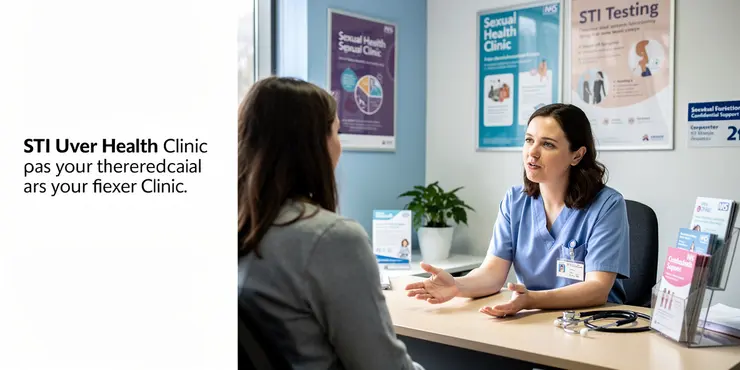
Can gonorrhoea be prevented?
Relevance: 37%
-
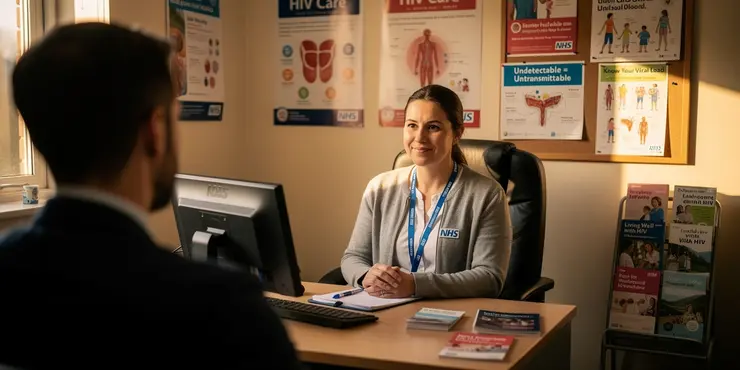
What does an undetectable viral load mean?
Relevance: 36%
-
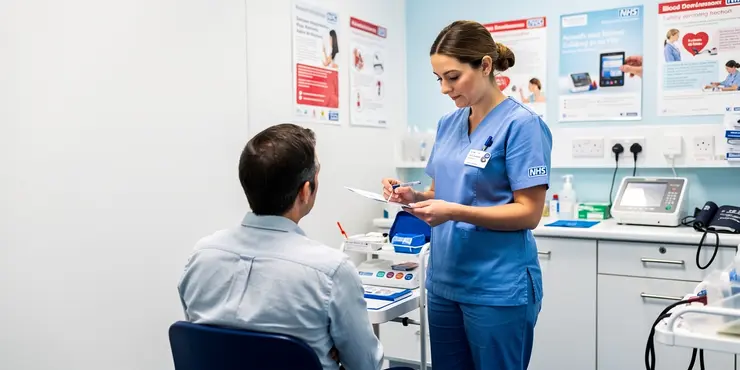
What measures are taken to prevent disease transmission in blood transfusions?
Relevance: 36%
-
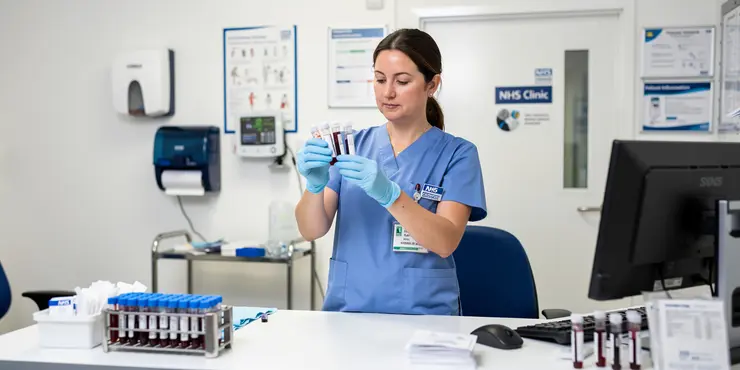
What other viruses are tested for in blood donations?
Relevance: 34%
-
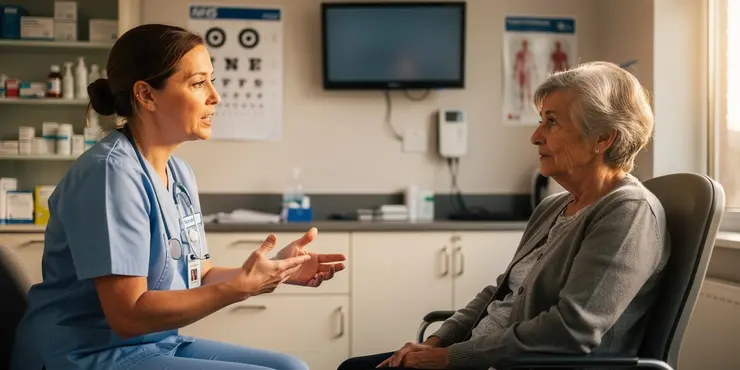
Can hypotony be prevented?
Relevance: 32%
-
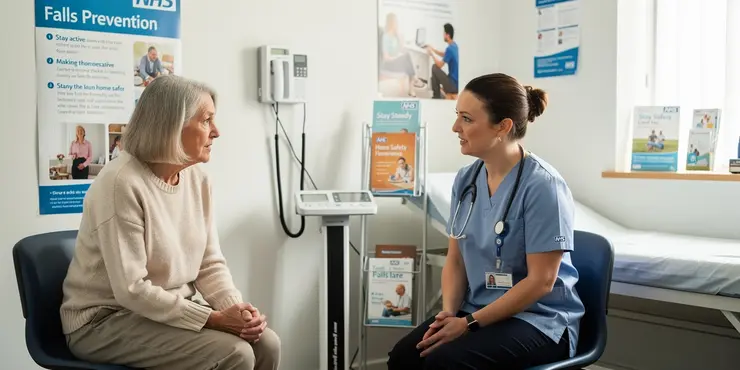
Falls Prevention Podcast
Relevance: 32%
-
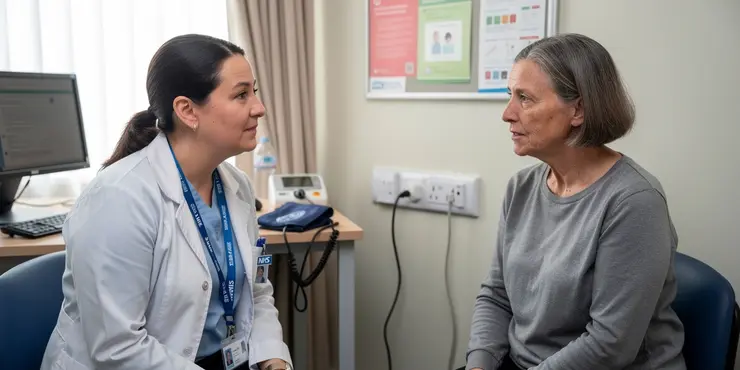
Can CFS be prevented?
Relevance: 32%
-
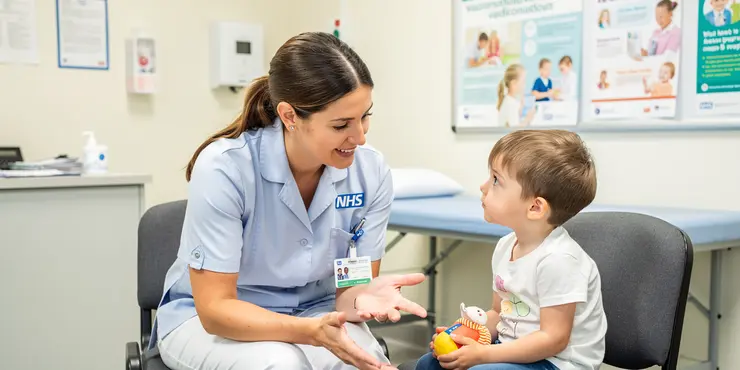
Can meningitis be prevented?
Relevance: 32%
-
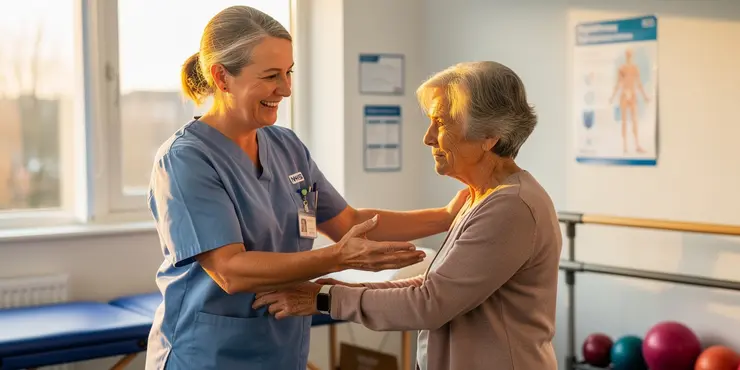
Falls and Falls Prevention
Relevance: 32%
-
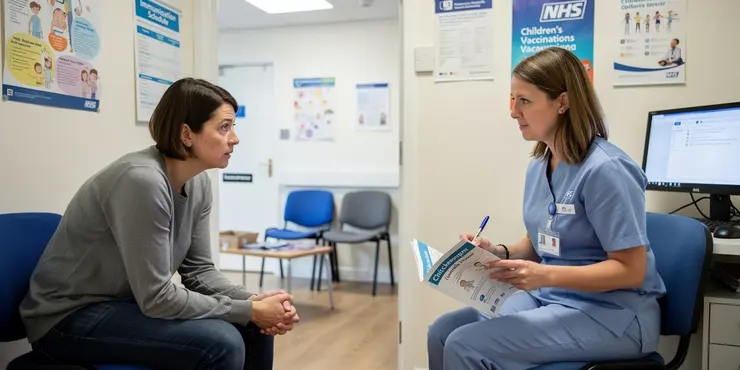
Can chickenpox be prevented?
Relevance: 32%
-
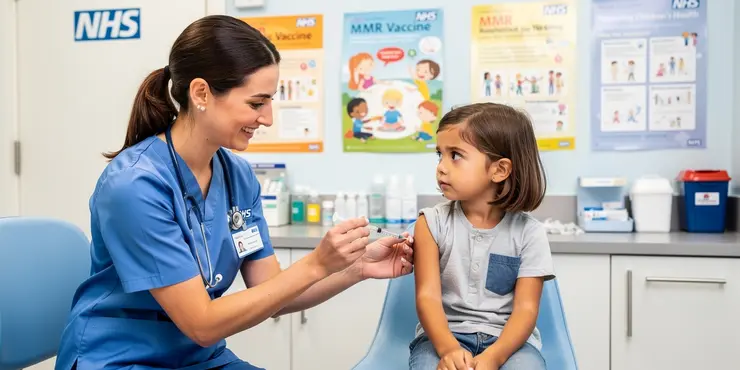
Can Rubella be prevented?
Relevance: 32%
-
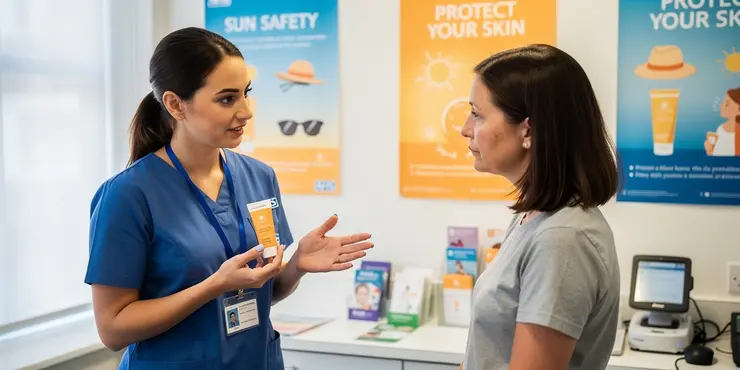
Can sunburn be prevented?
Relevance: 32%
-

Is postnatal depression preventable?
Relevance: 32%
-
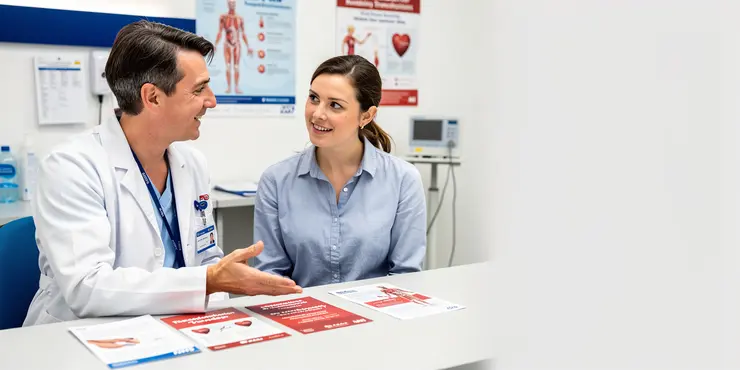
What diseases can be spread by blood transfusions?
Relevance: 31%
-
Are there preventative measures for eating disorders?
Relevance: 30%
Understanding HIV Prevention
Human Immunodeficiency Virus (HIV) is a serious health condition that affects countless people globally. Fortunately, there are effective strategies to prevent its transmission. By understanding these methods, individuals in the UK can take proactive steps to protect their health and that of others.
Safe Sexual Practices
One of the most common ways HIV is transmitted is through unprotected sexual contact. Using condoms correctly during vaginal, anal, or oral sex significantly reduces the risk of HIV and other sexually transmitted infections (STIs). It is essential to use condoms consistently and correctly every time you engage in sexual activities. Additionally, reducing the number of sexual partners can further decrease the likelihood of exposure to HIV.
Pre-Exposure Prophylaxis (PrEP)
PrEP is a medication taken by HIV-negative individuals to prevent infection. When taken daily, PrEP is highly effective in reducing the risk of contracting HIV from sexual contact and injection drug use. In the UK, PrEP is available on the NHS for those who are at high risk of HIV, such as individuals with an HIV-positive partner or those who frequently engage in sexual activities without protection.
Post-Exposure Prophylaxis (PEP)
PEP is an emergency medication taken after possible exposure to HIV. It is most effective when started within 72 hours of exposure and involves taking antiretroviral medicines for 28 days. PEP is available in NHS clinics and is intended for emergency situations, such as after unprotected sex or potential exposure through needle sharing.
Regular Testing and Early Diagnosis
Regular HIV testing is crucial for early detection and prevention. In the UK, free and confidential testing is available through sexual health clinics, GP surgeries, and community organizations. Early diagnosis allows individuals to begin treatment promptly, reducing the risk of transmission to others and improving health outcomes. Regular testing is particularly important for those who have multiple sexual partners or engage in activities that increase their risk of HIV.
Harm Reduction for Drug Users
For individuals who inject drugs, using clean needles and syringes is critical in preventing HIV. Many cities in the UK have needle and syringe programs that provide sterile equipment and disposal services. Moreover, substance misuse treatment services can offer support and alternatives to injection drug use, further reducing the risk of HIV transmission.
Addressing Stigma and Building Awareness
Reducing stigma around HIV is essential in encouraging people to seek testing and treatment. Education and awareness campaigns play a vital role in dispelling myths about HIV and promoting understanding about how it is transmitted and prevented. By fostering an open, supportive environment, communities can enhance prevention efforts and support those affected by HIV.
Conclusion
Prevention of HIV involves a combination of safe practices, medical interventions, and societal support. Through education, accessible healthcare, and a commitment to reducing stigma, the UK can continue to make significant strides in preventing the spread of HIV.
Understanding HIV Prevention
HIV is a virus that can make people very sick. It affects many people around the world. Luckily, there are ways to stop HIV from spreading. In the UK, people can learn about these methods to keep themselves and others safe.
Safe Sexual Practices
HIV can spread through sex without protection. Using condoms every time you have sex can help stop HIV and other illnesses. It is very important to use condoms the correct way each time. Having fewer partners can also lower the risk of getting HIV.
Pre-Exposure Prophylaxis (PrEP)
PrEP is a pill that people who do not have HIV can take to stay safe. If you take it every day, PrEP works well to prevent HIV. In the UK, people who have a higher chance of getting HIV can get PrEP from the NHS. This includes people with partners who have HIV or those who often have sex without protection.
Post-Exposure Prophylaxis (PEP)
PEP is a medicine for emergencies. You take it if you might have come into contact with HIV. PEP works best if you start it within 3 days (72 hours) after possible contact. You take the medicine for 28 days. In the UK, you can get PEP from NHS clinics in emergency situations, like after unsafe sex.
Regular Testing and Early Diagnosis
Getting tested for HIV is important. In the UK, you can get a free and private test at health clinics, GP surgeries, or community centers. Knowing your HIV status early helps you get treatment faster. This means you can stay healthier and help stop HIV from spreading to others. Testing is very important if you have many sexual partners.
Harm Reduction for Drug Users
If you use drugs with needles, use clean ones each time to avoid HIV. Many UK cities have programs that give clean needles to keep people safe. These places can also help people find other ways to use drugs that do not involve needles, lowering the risk of HIV.
Addressing Stigma and Building Awareness
It is important to fight against the unfair treatment of people with HIV. Learning the truth about HIV and talking about it helps everyone understand how HIV spreads and how to prevent it. By being supportive, communities help others feel safe to get tested and treated.
Conclusion
Stopping HIV means using safe habits, getting healthcare help, and supporting each other. With education and healthcare, people in the UK can help reduce HIV and support those living with it.
Frequently Asked Questions
What is the most effective way to prevent HIV?
The most effective way to prevent HIV is to abstain from vaginal, anal, or oral sex.
How can condoms help in preventing HIV?
Consistent and correct use of latex condoms during sexual intercourse can greatly reduce the risk of HIV transmission.
What is PrEP and how does it help prevent HIV?
PrEP (Pre-exposure prophylaxis) is a daily medication that can significantly reduce the risk of HIV infection in people at high risk.
How does getting tested for HIV help in prevention?
Getting tested for HIV helps individuals know their status, reduce the risk of transmission, and access treatment if necessary.
Can HIV be prevented through male circumcision?
Studies suggest that male circumcision can reduce the risk of heterosexual male HIV transmission by about 60%.
Is there a vaccine available for preventing HIV?
Currently, there is no HIV vaccine, but research is ongoing to develop one.
How do needle exchange programs help prevent HIV?
Needle exchange programs reduce the risk of HIV transmission by providing clean needles to people who inject drugs.
Does regular STI screening help prevent HIV?
Yes, regular STI screening helps detect and treat infections that increase the risk of acquiring or transmitting HIV.
How can treatment as prevention (TasP) prevent HIV transmission?
TasP involves using antiretroviral treatment to lower the viral load in people with HIV, reducing the chance of transmission.
What role does education play in preventing HIV?
Education about safe sex practices, HIV transmission, and prevention methods is crucial in reducing the spread of HIV.
Can HIV be prevented by avoiding sharing personal items?
Yes, avoiding the sharing of items like razors, toothbrushes, and needles can prevent HIV transmission.
How does PEP work to prevent HIV?
PEP (Post-exposure prophylaxis) is a treatment that should be started within 72 hours after potential HIV exposure to prevent infection.
Can treating other STIs help in preventing HIV?
Yes, treating STIs can reduce the risk of HIV transmission by lowering inflammation and open sores that facilitate entry of the virus.
Is it safe to have oral sex without a condom?
While the risk is lower, HIV can still be transmitted during oral sex, so using protection or barriers is safer.
Can blood safety measures help prevent HIV?
Ensuring blood products are screened for HIV helps prevent transmission through blood transfusions.
Does breastfeeding increase the risk of HIV transmission?
HIV can be passed from mother to child through breast milk, so safe feeding alternatives are recommended for HIV-positive mothers.
Can HIV transmission occur through casual contact?
HIV is not spread through casual contact such as hugging, shaking hands, or sharing utensils.
How does reducing alcohol and drug use help in HIV prevention?
Reducing alcohol and drug use can lower the likelihood of engaging in risky behaviors that increase the risk of HIV transmission.
Can you get HIV from tattoos or piercings?
HIV transmission is possible if unsterilized needles or equipment are used for tattoos or piercings.
Why is it important to use sterile medical equipment?
Using sterile medical equipment helps prevent the transmission of HIV and other bloodborne pathogens.
How can you stop HIV the best way?
The best way to stop getting HIV is not to have sex.
How do condoms stop HIV?
Condoms are stretchy covers. They go over a man's private part.
Condoms stop germs that give you HIV. HIV is a sickness.
Always use a new condom every time.
If you need help, talk to a helpful adult or a doctor.
Using latex condoms the right way every time you have sex can help stop the spread of HIV.
What is PrEP and how can it stop HIV?
PrEP is a pill that helps stop you from getting HIV. It stands for "pre-exposure prophylaxis."
PrEP is for people who do not have HIV but may come into contact with the virus. Taking this pill every day can help keep you safe.
If you need help remembering to take PrEP, you can:
- Set an alarm on your phone.
- Ask a friend to remind you.
- Put your pill in a place you see every day.
PrEP is a pill that you take every day. It helps keep you from getting HIV. If you are someone who might get HIV, this pill can help keep you safe.
Why is getting tested for HIV important?
Getting tested for HIV helps you know if you have the virus.
If you know you have HIV, you can take medicine to stay healthy.
Taking medicine also helps stop the virus from spreading to other people.
Knowing your HIV status helps you make choices to keep you and others safe.
If you find it hard to read or understand, ask someone you trust to help you. You can also use apps that read text out loud.
Testing for HIV can help you find out if you have the virus. Then you can stop it spreading to others and get medicine if you need it.
Can a boy's circumcision stop HIV?
Some people say that when a boy has circumcision, it can help lower the chance of getting HIV. But it does not stop it completely.
Using other protections like condoms and taking medicine can help a lot too. Talking to a doctor is a good idea for more help and advice.
If reading is hard, using pictures or reading out loud can help understand better.
Some studies say that if a boy or a man gets circumcised, it can make it much harder for him to get HIV from a woman. It makes it 60% harder.
Can a vaccine stop you from getting HIV?
There is no vaccine for HIV right now, but scientists are working hard to make one.
How do needle exchange programs help stop the spread of HIV?
Needle exchange programs give people clean needles.
Clean needles stop the spread of germs like HIV.
This helps keep people safe and healthy.
If you want to learn more, you can ask a helper or use simple books.
Needle exchange programs help keep people safe from getting HIV. They give clean needles to people who use needles to take drugs.
Can getting checked for STIs often stop HIV?
Yes, getting tested for infections, like STIs, can help doctors find and treat them before they cause problems. This can lower the chance of getting or spreading HIV.
How does treatment stop HIV from spreading?
Treatment as prevention (TasP) helps stop the spread of HIV.
When a person with HIV takes their medicine every day, it can lower the amount of virus in their body.
This can make it hard for them to pass HIV to others.
It is important to see a doctor and get help to keep taking the medicine.
Using reminders, pill organizers, or phone apps can help remember to take the medicine on time.
TasP means taking medicine to help people with HIV. This medicine makes the HIV virus very small. It helps stop passing the virus to others.
How does education help stop the spread of HIV?
Education teaches people about HIV and how it spreads.
It shows ways to protect yourself, like using condoms.
Learning about HIV helps people make safe choices.
Programs in schools and communities can teach about HIV.
Tools like posters and videos can also help people learn.
Learning about how to have safe sex, how HIV spreads, and how to stop it is very important. This helps stop more people from getting HIV.
Can you stop HIV by not sharing personal things?
HIV is a virus. It can make you very sick.
You can help stop HIV by not sharing personal things. Here are some steps you can take:
- Do not share toothbrushes.
- Do not share razors.
- Keep your things clean.
Using these tips can help keep you safe.
Yes, if we don't share things like razors, toothbrushes, and needles, it helps stop the spread of HIV.
How does PEP stop HIV?
PEP is a medicine that stops HIV if you start taking it quickly after coming into contact with the virus. You must take PEP for 28 days.
Here is how PEP works:
- PEP stops HIV from spreading in your body.
- You must start PEP within 72 hours (3 days) of contact with HIV.
- Take the medicine at the same time every day.
- Do not skip any doses.
If you think you need PEP, go to a doctor or clinic right away.
For easier reading, use tools like text-to-speech or colored overlays. They can help you understand better.
PEP is a medicine you take after you might have been around HIV. You need to start it within 3 days to stop getting sick.
Do treating other infections stop HIV?
Yes, treating infections like STIs (Sexually Transmitted Infections) can help lower the chance of getting HIV. It does this by healing the soreness and cuts that make it easier for HIV to get into the body.
Is it safe to have oral sex without a condom?
Oral sex means using your mouth on someone's private parts.
It is safer to use a condom during oral sex. A condom is like a cover. It helps stop germs that can make you sick.
Without a condom, you can catch or pass on infections. These are called sexually transmitted infections (STIs). Examples are herpes or gonorrhea.
Using a condom can help keep you and your partner healthy.
If you have questions, talk to a doctor or a nurse. They can help you understand more.
There are also websites and books that give good information.
There is a small chance of getting HIV from oral sex. It's safer to use protection, like a condom or dental dam.
Do blood safety rules stop people from getting HIV?
Checking blood for HIV makes it safe and stops people from getting the virus through blood donations.
Can breastfeeding spread HIV?
Breastfeeding can sometimes pass HIV from a mom to her baby. It's important to stay safe. A doctor or nurse can help.
Moms with HIV can give the virus to their babies through breast milk. To keep babies safe, moms with HIV should use other ways to feed their babies.
If you know someone who needs help understanding this, you can use pictures or simple charts to explain. Talking to a doctor or nurse can also help.
Can you get HIV from everyday contact?
HIV does not spread by hugging, shaking hands, or sharing forks and spoons.
How can drinking less alcohol and using fewer drugs help stop HIV?
Drinking less and using fewer drugs can help keep you safe from HIV. Here’s how:
- Clearer Thinking: When you drink or use drugs, it can be hard to make good decisions. If you think clearly, you can better protect yourself.
- Safer Choices: Not using drugs or alcohol makes it easier to remember using protection, like condoms, which helps stop HIV.
- Healthy Friendships: You can have better and safer friendships, where you look out for each other.
Here are some tips to help:
- Talk to someone you trust if you need help.
- Join groups or clubs that do fun things without alcohol or drugs.
- Make a plan to say 'no' to alcohol and drugs.
Remember, staying safe is important!
Drinking less alcohol and taking fewer drugs can help you make safer choices. This means you will be less likely to do things that could give you HIV.
Here are some things you can do:
- Talk to someone you trust about why you want to drink or use drugs less.
- Try to find activities you enjoy that don't involve alcohol or drugs.
- Ask for help or support if you find it hard to stop drinking or using drugs.
Can you get HIV from tattoos or piercings?
Getting tattoos or piercings can be safe if done correctly. Here are some tips to help keep it safe:
- Use new, clean tools for each person.
- Go to a professional shop with trained staff.
- Make sure they use gloves and clean everything well.
Going to a place that follows these rules can help you stay safe from HIV and other infections. Always ask if you are not sure about something.
You can catch HIV if the needles or tools used for tattoos or piercings are not clean.
Why do we need to use clean medical tools?
Using clean tools in hospitals is very important. Clean tools help stop germs from spreading. Germs can make people sick. When doctors and nurses use clean tools, it keeps everyone safe and healthy.
Here are some ways to remember why clean tools are important:
- Clean tools help stop sickness.
- Everyone stays safer and healthier.
- Doctors and nurses work better with clean tools.
If you find reading hard, you can:
- Ask someone to read with you.
- Use a tool that reads words out loud.
- Break the text into small parts and take your time.
Using clean medical tools stops the spread of HIV and other germs that can be passed through blood.
Useful Links
This website offers general information and is not a substitute for professional advice.
Always seek guidance from qualified professionals.
If you have any medical concerns or need urgent help, contact a healthcare professional or emergency services immediately.
Some of this content was generated with AI assistance. We’ve done our best to keep it accurate, helpful, and human-friendly.
- Ergsy carfully checks the information in the videos we provide here.
- Videos shown by Youtube after a video has completed, have NOT been reviewed by ERGSY.
- To view, click the arrow in centre of video.
- Most of the videos you find here will have subtitles and/or closed captions available.
- You may need to turn these on, and choose your preferred language.
- Go to the video you'd like to watch.
- If closed captions (CC) are available, settings will be visible on the bottom right of the video player.
- To turn on Captions, click settings .
- To turn off Captions, click settings again.
More Items From Ergsy search
-

How can HIV be prevented?
Relevance: 100%
-

What is HIV?
Relevance: 83%
-

What is HIV / AIDS?
Relevance: 79%
-

How is HIV transmitted?
Relevance: 79%
-

Are there vaccines available for HIV?
Relevance: 78%
-

How is HIV diagnosed?
Relevance: 75%
-

HIV and pregnancy | NHS
Relevance: 75%
-

What is the difference between HIV and AIDS?
Relevance: 74%
-

Sexual Health - HIV Testing
Relevance: 72%
-

How does HIV affect the immune system?
Relevance: 70%
-

Is HIV only a concern for certain groups of people?
Relevance: 70%
-

HIV - My Story - Florence | NHS
Relevance: 69%
-
Can HIV be transmitted through blood transfusions?
Relevance: 69%
-

Can people with HIV lead normal lives?
Relevance: 69%
-
What role does stigma play in the HIV epidemic?
Relevance: 69%
-

Can HIV be transmitted through insect bites?
Relevance: 68%
-

Is it safe for a partner of someone with HIV to have children?
Relevance: 68%
-

How often should someone get tested for HIV?
Relevance: 63%
-

Can HIV be cured?
Relevance: 56%
-

What are the symptoms of HIV?
Relevance: 53%
-

How is blood screened to prevent disease transmission?
Relevance: 46%
-

What is AIDS?
Relevance: 42%
-

Can shingles be prevented?
Relevance: 40%
-

Can shingles be prevented?
Relevance: 40%
-

What is antiretroviral therapy (ART)?
Relevance: 39%
-

Can gonorrhoea be prevented?
Relevance: 37%
-

What does an undetectable viral load mean?
Relevance: 36%
-

What measures are taken to prevent disease transmission in blood transfusions?
Relevance: 36%
-

What other viruses are tested for in blood donations?
Relevance: 34%
-

Can hypotony be prevented?
Relevance: 32%
-

Falls Prevention Podcast
Relevance: 32%
-

Can CFS be prevented?
Relevance: 32%
-

Can meningitis be prevented?
Relevance: 32%
-

Falls and Falls Prevention
Relevance: 32%
-

Can chickenpox be prevented?
Relevance: 32%
-

Can Rubella be prevented?
Relevance: 32%
-

Can sunburn be prevented?
Relevance: 32%
-

Is postnatal depression preventable?
Relevance: 32%
-

What diseases can be spread by blood transfusions?
Relevance: 31%
-
Are there preventative measures for eating disorders?
Relevance: 30%


